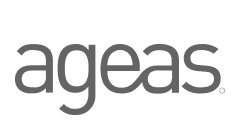AI can make insurance more inclusive
AI has the capacity to revolutionise the insurance business over time, changing the relationship between insurer and the insured forever, and for the better. But there is more at stake. AI also raises ethical questions for the industry.
Putting the customer in control
Insurance has always been a data intense industry. It is perhaps only now, thanks to AI, that we can truly unlock all the power of that data for the customer. AI provides the capabilities to analyse vast amounts of personal data, better capturing risk factors, individual preferences, and behavioural patterns. Will we tailor your motor insurance to the usage of your car and your driving behaviour? Should we link up the connected devices in your home with your fire insurance? AI allows us to incorporate data insights into our operations at every level in order to hyper-personalise insurance offers, and simplify processes, handing greater control to the customer. Ordinary customer journeys are being slowly transformed into data driven interactions, covers and prices tailored to their individual needs. Ironically, technology can truly humanise the insurance industry.
AI is changing the way we look at risk
But could this new focus on individual risk assessment also change the fundamentals of the risk model used by insurers, that has served society well for centuries? Insurance is built on the principle of risk pooling and mutualisation - spreading the cost of losses for the unfortunate across the wider society – and is underpinned by a firm belief in fairness. Historically, insurers have always based decisions on the risks of groups of customers who share certain elements of the unknown. AI has the capabilities to calculate the probability of a risk occurring at the level of the individual. One can imagine this could lead to the point where insurers would focus first on cherry picking the ‘best’ types of risks, selecting customers that are predicted to bring the lowest claims. This could in turn create a 'hole’ in insurance with more ‘uninsurable’ risks arising. It is no surprise that the European insurance regulator EIOPA is focusing so much attention on fairness and ethics in its regulatory considerations around AI. After all, this sits at the heart of what it means to be an insurer. We provide a crucial stabilising factor in society, absorbing uncertainty so that citizens can live their life to the fullest.
Insurers should collaborate
As a sector we must work together to ensure that we don’t create a ‘hole’ that could place consumers at a disadvantage, widening disparity in society. The industry must agree to collaborate and define a way of working that reinforces the underlying ethical principles of insurance. Our role as responsible insurers is to ensure that as many people as possible can enjoy the peace of mind that they will be protected in case something goes wrong.
Benefitting from the power of data
The good news is there are plenty of opportunities out there. Hyper personalisation of underwriting in healthcare can favour the healthiest, impeding those most in need from insuring their mortgage to buy a house. On the other hand, we can unlock the insights from connected devices to promote healthy lifestyles and improve a customer’s risk profile. This would allow us for instance to provide solutions for diabetes patients so they can build a warm nest for their families. Climate change will expand the areas at risk of flooding and heat waves, leaving a wider group of vulnerable citizens uninsured. AI can help us to build better geographical diversification and preventive alarm systems to make sure we can keep everybody covered for fire and floods.
Using AI to exclude or avoid risk will both drive profitability for insurers, but the impact on society is very different! AI can be a tool that drives exclusion or promotes inclusion. The choice is on us!
Doing the right thing as insurers
We are duty bound to consider the wider implications AI may have on the future of the industry. We do that through collaboration, remembering the important role insurers play as a safety net for society. Today, we are at a crossroad to decide between exclusion or inclusion for our industry. It is our duty to protect the integrity of insurance and to maximise the value it brings to all. The direction we choose will be based on human intelligence.
Hans De Cuyper
CEO of Ageas
